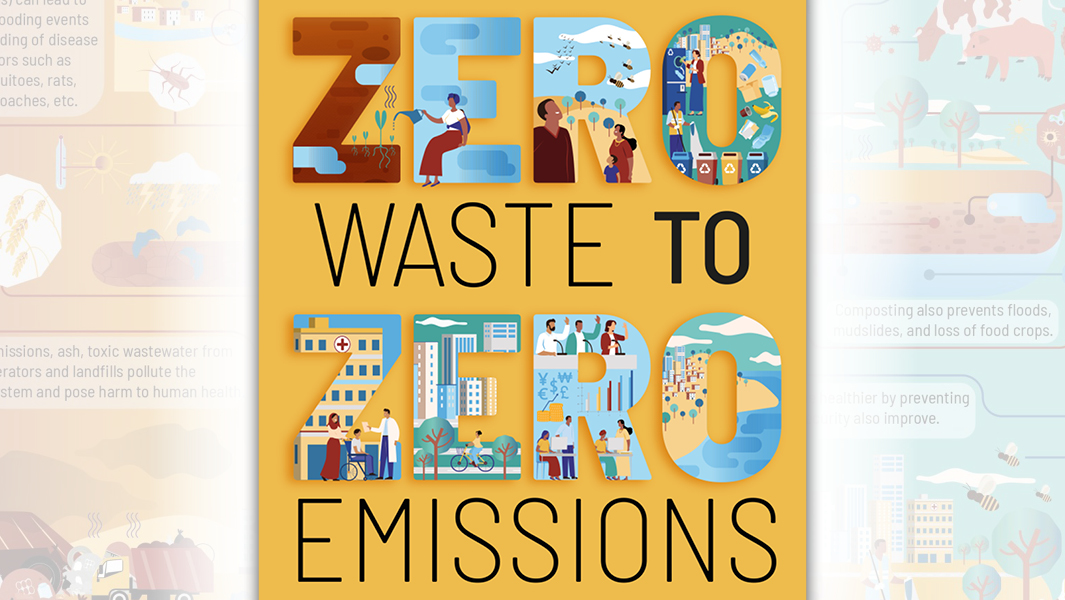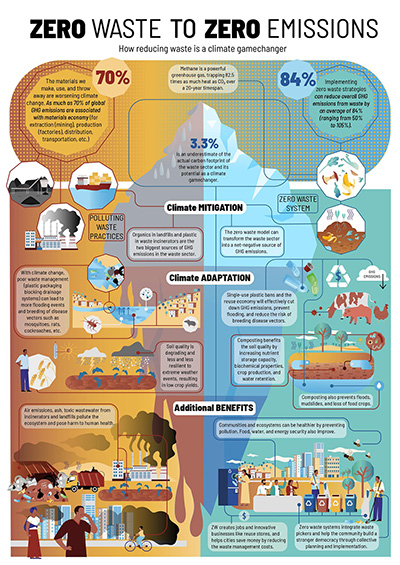The introduction of zero waste systems in cities around the world would be one of the quickest and most affordable ways to reduce global heating and stay below 1.5°C of warming, according to a new report — Zero Waste to Zero Emissions: How Reducing Waste is a Climate Gamechanger — released by the Global Alliance for Incinerator Alternatives (GAIA). The waste sector accounts for 3.3% of global greenhouse gas emissions, and a fifth of global methane emissions, states GAIA. “Introducing better waste management policies such as waste separation, recycling, and composting could cut total emissions from the waste sector by more than 1.4 billion metric tons, equivalent to the annual emissions of 300 million cars.”
Zero Waste to Zero Emissions modeled potential emissions reductions from eight cities around the world. The authors found that on average, these cities could cut waste sector emissions by almost 84% by introducing zero waste policies, with some, such as São Paulo, Brazil and Detroit, Michigan, able to reach net-negative emissions by 2030. “But this figure underestimates the potential impact of waste management reforms,” notes the report. “At least 70% of global emissions come from the manufacture, transport, use and disposal of goods. A focus on waste reduction could significantly reduce the emissions in these sectors too.”
The report is organized around three overarching positive impacts of incorporating zero waste systems into current waste management methods: Climate mitigation, e.g., source reduction and separate collection and treatment of organic waste; climate adaptation, e.g., helping cities become more resilient by mitigating floods, reducing disease transmission, and improving soil quality; and additional societal benefits, e.g., improving public health, reducing environmental pollution, incentivizing job creation, and supporting community development. GAIA is urging global leaders to take urgent and bold action on zero waste by:
- Incorporating zero waste goals and policies into climate mitigation and adaptation plans
- Prioritizing food waste prevention and single-use plastic bans
- Instituting separate collection and treatment of organic waste
- Investing in waste management systems, recycling, and composting capacity
- Establishing institutional frameworks and financial incentives for zero waste including regulations, educational and outreach programs, and subsidies for recycling and composting














